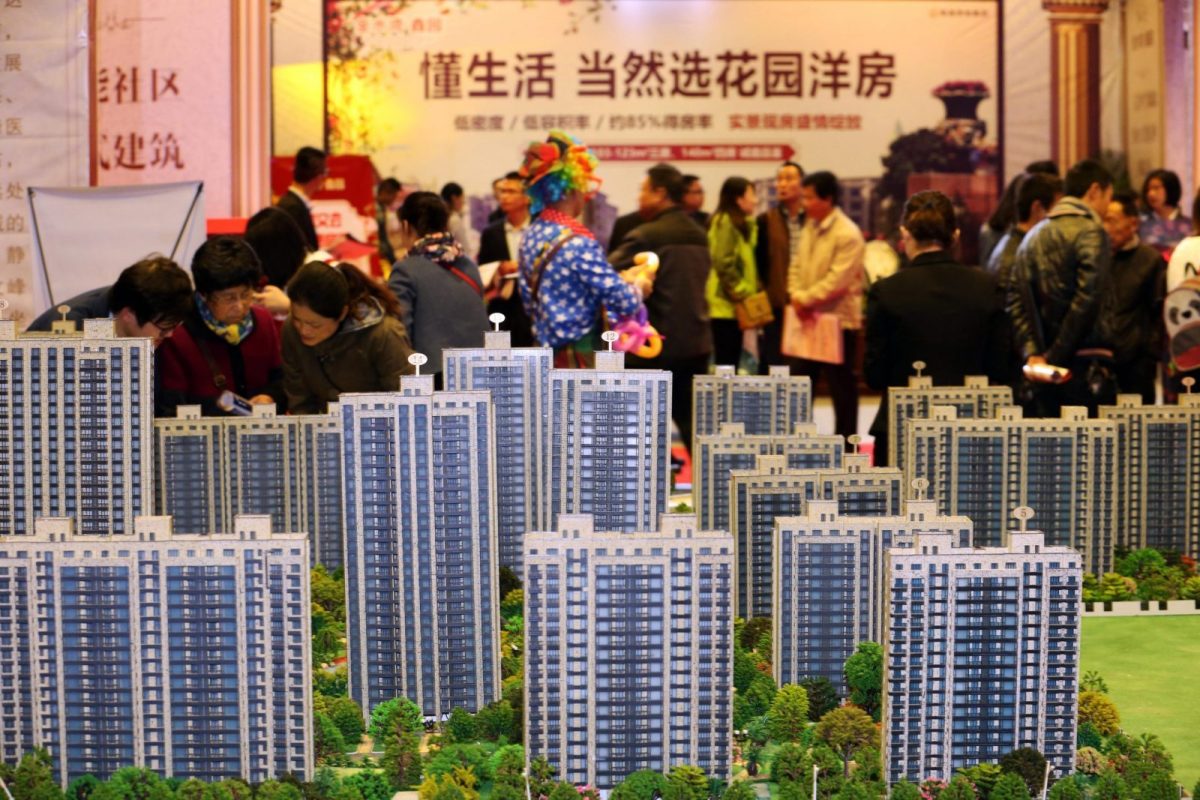[ad_1]
HONG KONG – When China’s top banking regulator Guo Shuqing told a media briefing in Beijing earlier this week that he was worried about emerging bubbles in mainland property markets, he referred to the risk as a “gray rhino,†or a danger that is obvious but ignored.
Many investors have recently purchased apartments for speculation, mortgage loans that could go south and become non-performing assets for banks if property prices declined significantly, Guo said.
With that top-level warning, China is expected to further tighten rules to suppress home prices and mitigate property-related financial risks after speculators found ways to bypass existing regulations and curbs.
Guo said he believed the problems would be resolved as tightening measures launched by his China Banking and Insurance Regulatory Commission (CBIRC) had started to show results last year. He noted that the growth rate of outstanding property loans was lower than all other categories of loans in 2020.
According to a report published by the People’s Bank of China (PBoC) on January 29, the country’s outstanding property loans, including real estate development and mortgage loans, grew 11.7% year on year to 49.58 trillion yuan (US$7.67 trillion) at the end of 2020.
The growth rate in property-related loans has declined for 29 consecutive months, the research showed. Meanwhile, the outstanding amount of all bank loans surged 12.8% year-on-year to 172.7 trillion yuan at the end of 2020.
Between February and April 2020, home prices in top-tier Chinese cities such as Beijing, Shanghai, Guangzhou and Shenzhen had roughly remained unchanged as property sales were suspended amid the Covid-19 lockdown.
Since last May, however, property prices have regained upward momentum. According to the National Bureau of Statistics, property prices grew 2.3% in Beijing, 4.2% in Shanghai, 5.2% in Guangzhou and 4.1% in Shenzhen last year. Many other cities recorded 4-6% year-on-year growth in 2020.
White-collar workers, who make on average about 12,000 yuan per month, have complained about high and rising property prices in Beijing, where an 80-square-meter apartment near the Fifth Ring Road now costs more than 4.5 million yuan, or 56,250 yuan per square meter.
Banks and developers
On July 24, 2020, Chinese Vice Premier Han Zheng said in a work meeting that houses should be built for living, not speculation. Han said banking regulators should closely monitor all property loans and prevent them from flowing irregularly into the property market.
CBIRC’s Guo described property bubbles as a “gray rhino†for the first time in August last year. On August 20, the PBoC and the Ministry of Housing and Urban-Rural Development launched new guidelines for property developers to fulfill certain requirements if they plan to take out loans.
On December 31, the PBoC and the CBIRC put out a notice urging commercial banks to improve the management of their property loans and limit the ratios of these loans in their overall loan portfolios.
For more than a decade, banking regulators have imposed different measures to curb speculation in property markets. Since 2009, for instance, property developers have been forbidden from “hoarding†land and flats.
Since 2010, people have been required to make higher down payments and pay higher interest rates on mortgage loans if they buy more than one flat. In 2011, most cities barred people from buying a second home.
Some rules have been loosened in the past decade, but in general, they are getting tougher. In recent years, some local governments ordered a cap on home prices in the secondary market, with homeowners not allowed to sell their flats with a mark-up of more than 10%.
In some cities, property developers must agree to cap the selling prices of their apartments before they buy a site.
Market loopholes
As local governments have tried to help first-time homebuyers purchase flats, most new apartments in key cities have been priced lower than those in the secondary market since last year. However, the trend has created a new problem as many speculators have paid first-time homebuyers and used their names to purchase new flats.
Zhang Xuefan, the head of Shenzhen’s housing and construction department, said last November authorities would probe irregularities in property markets and curb the alleged speculative activities.
On January 22, 12 first-time homebuyers were fined by the Shenzhen Housing and Construction Department after their names were used to “purchase flats for speculators.†They will not be allowed to purchase flats again within three years under the penalty.
Yan Yuejin, director of the Shanghai-based E-house China Research and Development Institution, said the Shenzhen government needed to cross-check the financial backgrounds of first-time homebuyers to prevent them from “purchasing flats for speculators.†Yan said he expected more cities to follow suit.
On February 8, the Shenzhen Housing and Construction Department released a reference price list for properties in the city’s 3,595 districts and ordered commercial banks not to offer mortgage loans to those who purchased flats at a high premium in the secondary market.
Since then, Beijing, Shanghai, Guangzhou, Dongguan and Hangzhou have also unveiled new rules in a bid to boost market transparency and forbid homebuyers taking personal loans to pay their down payments. In Hangzhou, the number of years that people must hold their apartments before selling them has been raised to five from three.
Li Yujia, chief researcher at Guangdong Property Policy Research Institute, said the newly-released reference price list would help cap Shenzhen’s home prices but not make the market collapse.
Li said highly-leveraged speculators would be driven out of the market over the medium run and that new rules unveiled by other cities would help to lower risks broadly in the banking and property sectors.
[ad_2]
Source link













